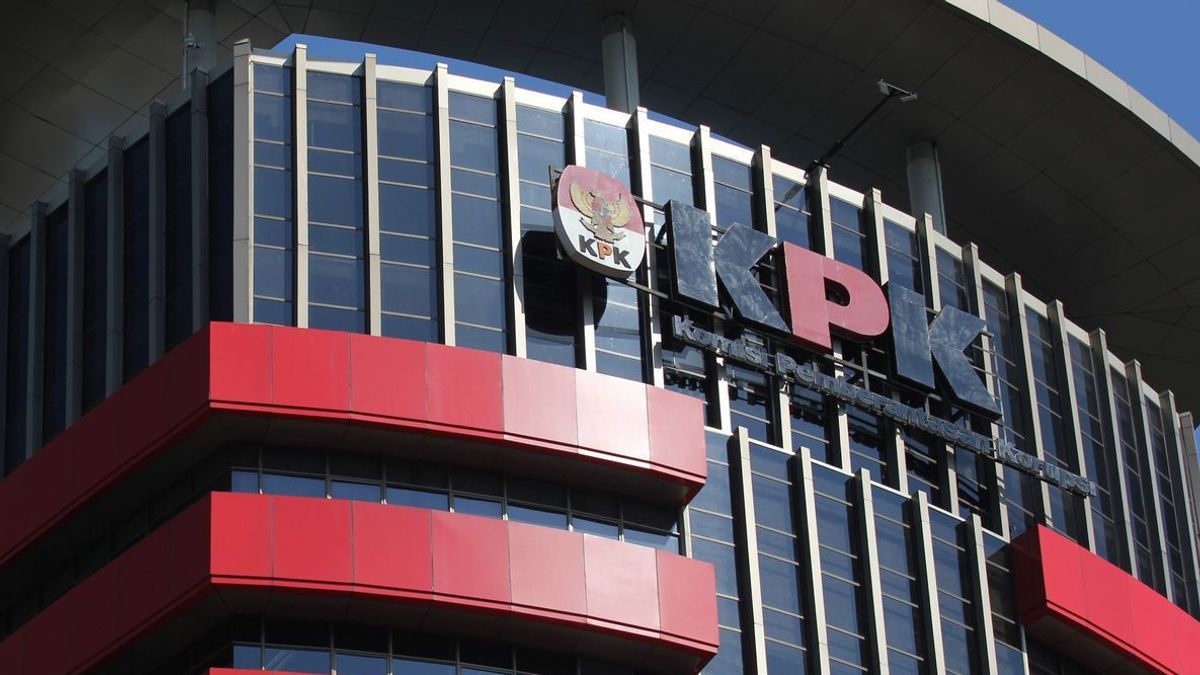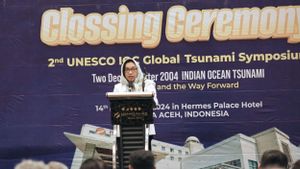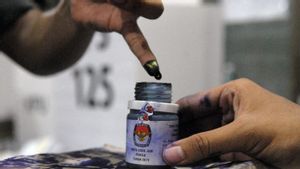JAKARTA - The Corruption Eradication Commission (KPK) regrets the decision of the Semarang State University (Unnes) to return a student named Frans Napitu to his parents. This decision was taken by the campus after Frans reported to the KPK regarding the alleged corruption of the Unnes Rector.
"The KPK regrets that the Unnes Chancellor has returned to his parents' coaching because he has reported the Chancellor to the KPK on suspicion of corruption," said KPK Deputy Chairman Nurul Ghufron in a statement quoted from Antara, Tuesday, November 17.
He considered that Frans Napitu had the right to report to the KPK if he knew of a suspected corruption crime. This, said Ghufron, is protected by law as referred to in Article 41 paragraph 1 of Law Number 20 Year 2001 concerning Eradication of Corruption Crimes.
"It clearly emphasizes that the public can play a role in helping efforts to prevent and eradicate corruption," said Ghufron.
In fact, he continued, the state has prepared an award for the implementation of community participation based on the legal basis of Government Regulation Number 43 of 2018 concerning procedures for implementing community participation and giving awards in the prevention and eradication of criminal acts of corruption.
"Therefore, if there are civil servants who impose sanctions on the implementation of their rights and obligations in participating in the eradication of corruption, this is very unfortunate," said Ghufron.
Previously, the Faculty of Law Unnes returned Frans Napitu to his parents to receive moral character development.
The Dean of the Faculty of Law, Unnes Rodiyah in Semarang, said Monday that along with the decision, the university had also postponed all of Frans Napitu's obligations as a student of Unnes for the next six months.
"We have sent a notification letter to the parent concerned via PT Pos as well as a notification via WhatsApp," he said.
In his report to the KPK, Frans Napitu said that there were several components related to finance / budget that were considered odd or inappropriate at Unnes, which led to allegations of criminal acts of corruption based on the results of observations made by him.
The component in question is finance that comes from students and outside students both before and in the middle of the COVID-19 pandemic.
Frans Napitu also emphasized that the criminal act of corruption is an act that cannot be justified, especially when corruption that causes financial losses to the state carried out in a disaster situation (COVI-19 pandemic) can be categorized as a serious crime.
The threat of punishment is the death penalty as regulated in Law Number 20 of 2001 concerning amendments to Law Number 31 of 1999 concerning Eradication of Corruption Crimes.
The English, Chinese, Japanese, Arabic, and French versions are automatically generated by the AI. So there may still be inaccuracies in translating, please always see Indonesian as our main language. (system supported by DigitalSiber.id)









